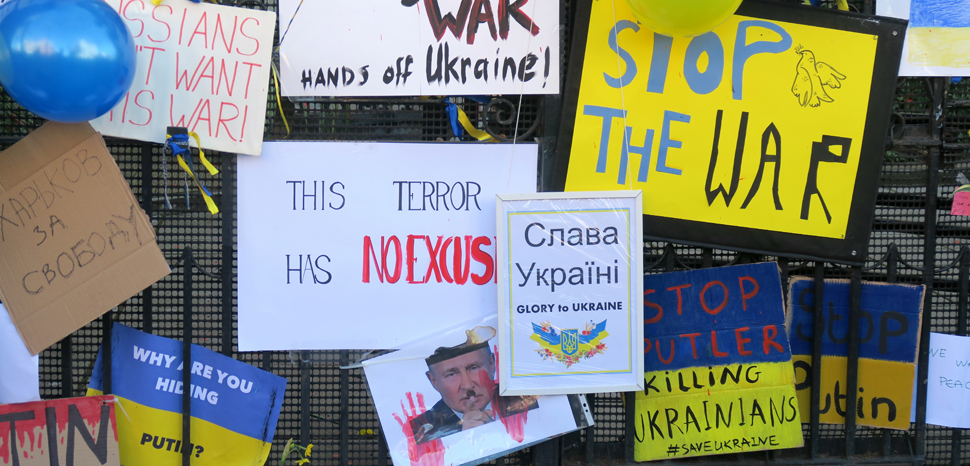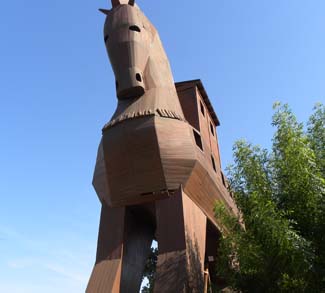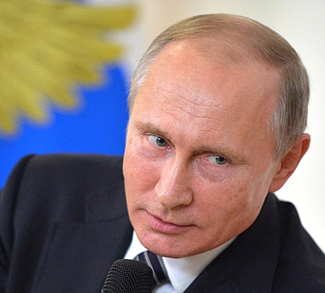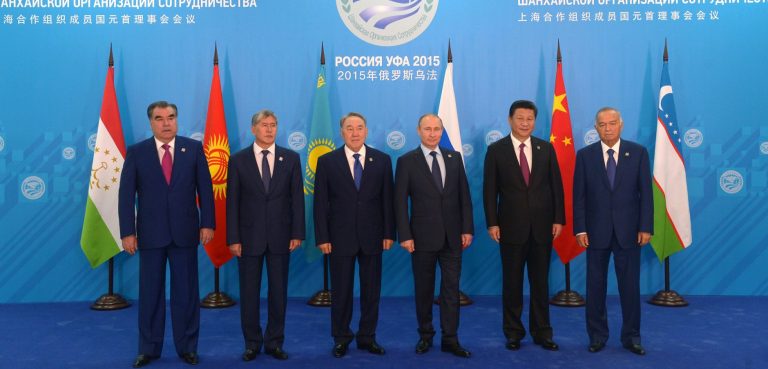After a tense months-long build-up, Russia is currently in the middle of an illegal, full-scale invasion of sovereign Ukraine. Vladimir Putin’s desire for military conquest, while ignoring the rule of law, has caught the international community off guard, with democracy and multilateralism seemingly facing their biggest threat in decades.
The international community initially reacted to Russian aggression by announcing sanctions, which many deemed inadequate, to damage Putin and his regime in both the short and long term. But the panic of the first days of the invasion has given way to a more hopeful outlook. The international community, besides a few notable exceptions, have supported the brave efforts of the Ukrainians and their president, Volodymyr Zelensky, in ways that reveal the world hasn’t necessarily reverted to the days of military conquest and nationalist fervour. Instead, Russia’s actions have sparked the world into action to defend the importance of the rule of law, sovereignty, and multilateralism.
The fierce resistance of the Ukrainian people in holding back a force three times its size has galvanised the international community in advocating against illegal aggression and territorial conquest, which the world seemingly left behind decades ago. While the situation is uncertain, Russian forces have so far failed to win air superiority or capture the Ukrainian capital, Kyiv, after expecting to take the city within 24-48 hours. According to the Kyiv Independent, Russia has also suffered significant casualties, with over 4,300 killed or injured as well as the loss of over 140 tanks, 26 helicopters and multiple aircraft, including two Il-76 cargo aircraft. In reaction, Russia has reverted to indiscriminate attacks on Ukrainian cities, which has resulted in the deaths of innocent Ukrainian civilians and has led to allegations of war crimes.
The resistance of Ukrainian forces has inspired the international community, in particularly the European Union, to step up and provide assistance. The EU has announced it will finance the delivery of $500 million worth weapons to Ukraine, including fighter jets. This is unprecedented for a bloc that identifies as a ‘peace project’ as it marks the first time in the in its history that it will send arms to a country under attack. The EU has also put a total ban on Russian aircraft using their airspace and has banned Russian state media outlets Sputnik and Russia Today from broadcasting in EU territory. Unilaterally, Germany has made a historic pivot in response to Russian aggression, with its Chancellor, Olaf Scholz, committing $112 billion to a fund for its armed forces, an increase in its defence budget that is above 2 per cent of GDP. These moves come after several European countries, including Sweden, the Netherlands, Czechia and Belgium, have been sending lethal aid to assist the Ukrainian military in an act of overwhelming support. In an even more positive move, the European Commission president, Ursula von der Leyen, has been quoted saying that Ukraine is “one of us and we want them in the European Union” leading to calls that Ukraine could quickly join the EU and distance itself from Russia. This is a clear sign that the EU has reacted to the invasion of Ukraine with a coordinated and strong response that has put Russia on the back foot.
The United States and Australia have also announced that they will assist Ukraine militarily, with the US providing $350 million worth of military aid, including Javelin anti-tank weapons and Stinger missiles, and Australia in talks to fund weapons through NATO. This comes after NATO has moved quickly to strengthen its military presence in Eastern Europe to act as a deterrent. This is a show of force that aims to isolate Putin further from Europe and to support NATO members close to Russia.
Sanctions against Russia have come from around the world and have quickly increased in severity. The US, EU and the United Kingdom announced on Saturday that crippling sanctions would be placed on Russia’s financial sector, including access to the global financial system SWIFT and severe restrictions on its central bank that will target more than $600 billion in reserves to economically cripple Putin’s regime. Australia, New Zealand, Japan and Taiwan have also sanctioned Russia in a sign of solidarity that shows the world finds the actions of Russia abhorrent.
Protests and acts of solidarity worldwide, spurred on by brave acts captured on Ukrainian social media, have shown that countries and their citizens find the actions of Putin and Russia intolerable. Protests have been held in the UK, France, Spain, Germany, Turkey, The Netherlands, Montenegro, Cyprus, Japan, Norway, Sweden, Italy and Australia, with protesters chanting ‘Stop Putin, stop war’ and flying Ukrainian flags. Thousands have also rallied in support of Ukraine in Russia itself, with protests occurring in many cities, leading to the arrest of thousands by Russian police.
Ukraine’s western neighbours have also shown remarkable solidarity, with many countries hosting hundreds of thousands of displaced women and children. Slovakia is allowing all Ukrainians, including those without a passport, to enter the country and to have access to free healthcare, accommodation and transport. Poland and Hungary, notoriously anti-immigration, have announced that they will take in as many refugees as necessary and Greece has pledged support all arrivals from Ukraine. This can be seen as nothing but overwhelming support for Ukraine by its closest neighbours.
Some of Russia’s allies are also not supportive. On Friday, China and India, two of Russia’s closes allies, abstained from a resolution tabled by the US and Albania that condemned the Russian invasion of Ukraine in the UN Security Council. The resolution called for Russia to immediately withdraw its forces from Ukrainian territory and to reverse its recognition of the regions of Donetsk and Lugansk as independent. While the resolution won 11 votes in favour, it was vetoed by Russia, as per its right as a permanent member of the Security Council. But because of the unsupportive actions of China and India, this has been widely seen as a diplomatic victory for the international community and shows that the majority of the world is not supportive of Russia’s actions.
Some commentators suggest that the age of the rule of law, democracy and multilateralism is over, in favour of aggressive nationalism. I suggest otherwise. Russia, through its vagrant disregard for the rule of law the lives of innocent civilians, has severely misjudged the priorities of the international community and has galvanised the world. Both governments and civilians now understand the dire consequences when countries like Russia are allowed to act unopposed and with impunity. While Ukrainians still face an uncertain future, Putin and his brand of nationalism has lost. The international community is collaborating and finding diplomatic solutions to aid Ukraine in its greatest hour of need and to punish Putin’s regime for a barbaric act of aggression. This shows that the world isn’t ready to allow aggressive nationalism to overtake the rule of law, democracy and multilateralism just yet.
The views expressed in this article are those of the authors alone and do not necessarily reflect those of Geopoliticalmonitor.com




